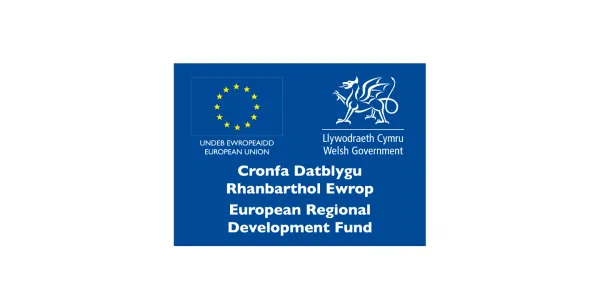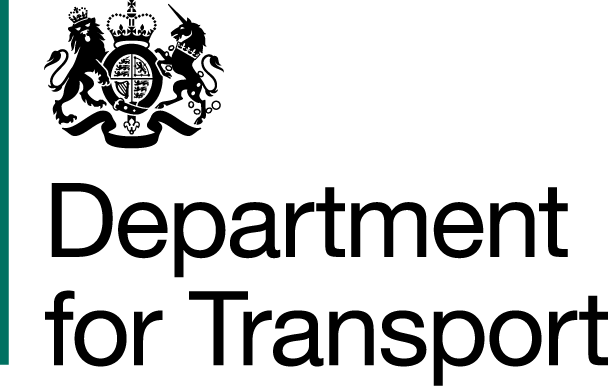Piling needs to happen so we can install the Overhead Line Equipment (OLE) for our fast, green new tram-trains
We’re electrifying around 170 km of track on the Aberdare, Coryton, Merthyr Tydfil, Rhymney and Treherbert lines, as well as the City line between Ninian Park and Radyr, to build the South Wales Metro. To do this we’ll be installing new overhead electrical equipment to power our faster, greener new tram-trains.
We need to install foundations for this equipment using a construction process called piling.
Piling can be loud and disruptive, but we’ll do our best to minimise the noise and impact on people living near the railway.
What is piling?
Piling is the construction process used to install the majority of the foundations for the OLE. It involves driving the pile /foundation supporting the equipment deep into the ground.
It’s a noisy job involving heavy machinery which can create a lot of noise.
We’ll also need to cut back the trees and bushes within three metres of where we’re piling. You can read more about our work managing vegetation here.
Piling footage was taken on the Aberdare line on 27th July 2021, as part of TfWs work to install the first piles in South Wales, delivered by Subcontractors Keltbray supported by Van Elle’.
Why are you piling at night?
Many people rely on our rail services during the day to get to work, to appointments or to get out and about. This means that the piling we need to do needs to be carried out mainly at night so we can carry on running our rail services during the day.
It’s also safer for our engineers. They don’t have to worry about waiting for trains to pass while they’re at work and they can get the job done quicker.
Why is piling so noisy?
We need to install foundations using heavy machinery which, when installing the steel pile into the ground, makes a lot of noise. But we’ll do our best to reduce the impact it will have on people who live near the valleys lines.
We’ll be using two types of piling – hammering and auger piling, depending on ground conditions. Hammer piling is usually noisier, but the noise can be affected by many different factors, including open spaces and nearby buildings.
What are you doing to reduce the noise and impact?
There are some methods we can use to reduce the noise made by piling, including fencing off piling sites or placing an integrated curtain around the hammer.
While these might reduce noise levels, they won’t stop it entirely.
Will you write to me before you work near my home?
We’re electrifying over 170km of track which will take us until 2023, so we can’t write to every household impacted by our work every time we carry out work.
We will, of course, do our best to keep our neighbours and communities informed by sending letters at key times, updating our social media channels and publishing information on our website.
Noise can affect us all in different ways. It can depend on factors like local geography, wind direction and how we sleep. Sometimes noise can travel further than we’d expect, so it's difficult to anticipate how individual households may be affected by our work at night and write to them.
As well as our multi-million-pound improvement work, we have a large local team looking after the valleys lines 24-hours-a-day. This team carries out line inspections, general maintenance or emergency works to fix faults.
We want to be good neighbours so we’re keen to hear from you. Your comments and feedback will help us to improve what we do.
Why can’t you tell me when exactly you will be piling near me?
This particular work is fairly transient – meaning we won’t necessarily be in the same location every shift or be installing piles in geographical order. We will move up and down the railway line depending on the types of pile we need to install and in any given shift we can cover an area of several miles.
We recognise you would like to know an exact date when the works will take place however piling work is carried out by several methods that are dependent on the ground conditions. This means our engineers have to carry out checks days before work starts, and may sometimes make late changes to the exact timing and location.
With thousands of homes close or backing on to the railway, and work happening most nights that is potentially subject to these late changes, it would be extremely difficult for us to write to every home ahead of each night shift. However, we will write to you ahead of us starting work on your local railway line with expected start and end dates for piling, potentially covering a number of weeks or months.
We will also provide more up to date information on works in your area at: https://workinyourarea.trc.cymru/
Why do you need to cut back trees, bushes and other vegetation for OLE?
We need to cut back up to nine metres from the line, or to our boundary fence, whichever is closest, in order to install the OLE for our new, greener, more reliable and efficient tram trains.
Woody vegetation near the line can cause many issues which can potentially lead to delays, or even accidents. This can include trees and bushes getting in the way of signals, wet leaves making the track slippery, and floods because of poor drainage.
Overhanging trees and branches need to be well away from our overhead lines as they can cause problems and make our trains late.
Once we’ve cut back, the trees and bushes we’ll also be maintaining them. The vegetation around the tracks hasn’t been maintained as closely as it should over the years. So when it’s cut back, it will be kept at this level in the future.
How long does piling take?
An average pile between one and three hours per foundation installation. It’s often completed in one job allowing our engineers to move on to the next location, but some types of piling may require a second visit to complete the job by pouring concrete in.
What’s next after piling is complete?
After we’ve completed piling we’ll be back at a later date to put up the supporting metal posts and get the overhead lines ready for our new, greener, more reliable and efficient tram-trains.
Will TfW compensate me for disruption caused?
We’ll be working to minimise disruption to communities and local businesses as much as possible, however, the nature of some of our work means that some disruption is unavoidable. We have a right and a duty to maintain and renew our assets and, as a publicly funded organisation, we are not able to provide compensation or ‘gesture’ payments owing to disruption caused by our work. We aren’t able to make home improvements or temporary relocate people to hotels whilst our work is underway.
We will do our utmost to be a respectful neighbour during our time in the community.




